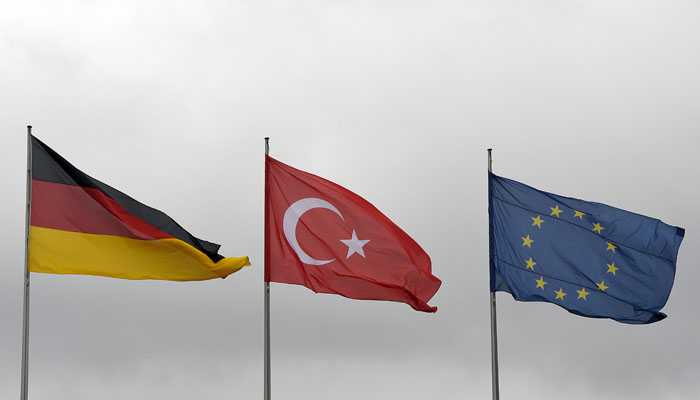Some high-ranking police chiefs and a member of Turkey’s National Intelligence Organization (MİT) top brass are among asylum seekers in Germany, the Die Welt website reported on Wednesday.
According to the Deutsche Welle (DW) Turkish service report, Die Welt confirmed with the German Federal Office for Information Security that another senior bureaucrat who was a coordinating officer between the Turkish and German security agencies also applied for asylum in Hessen state.
Die Welt reported that more than 6,700 Turkish citizens have applied for asylum in Germany since a failed coup last July in Turkey that resulted a wide-ranging crackdown on dissenters in government jobs.
German officials are concerned about developments in Turkey since over 150,000 people, including academics, teachers, members of the Turkish judiciary and members of the security forces, were fired from their jobs in government institutions, Die Welt said.
In a letter to German authorities, a member of the German Federal Office for Information Security, who was in touch with the senior bureaucrat, said the Turkish government’s crackdown on dissidents will damage the accumulation of knowledge for a long time to come and that new appointees to the positions will not be able to repair it.
Data from the German Federal Office for Migration and Refugees (BAMF) indicate that a total of 3,206 Turkish nationals applied for asylum in Germany in the first six months of 2017.
According to a report in the German news magazine Der Spiegel in early May, at least 450 Turkish diplomats, military personnel, judges and other civil servants have been seeking asylum in Germany in a bid to escape a post-coup crackdown back home.
The development has angered Ankara, with Turkish officials voicing regrets over Germany’s decision to grant asylum to Turkish officers.
Turkey has been criticized by EU members due to President Recep Tayyip Erdoğan’s crackdown on opponents, including journalists and human rights defenders, in the wake of a botched coup attempt last year. Erdoğan has increased his presidential powers after a referendum in April, claiming that it is necessary to protect Turkey’s security from its domestic and foreign enemies.



